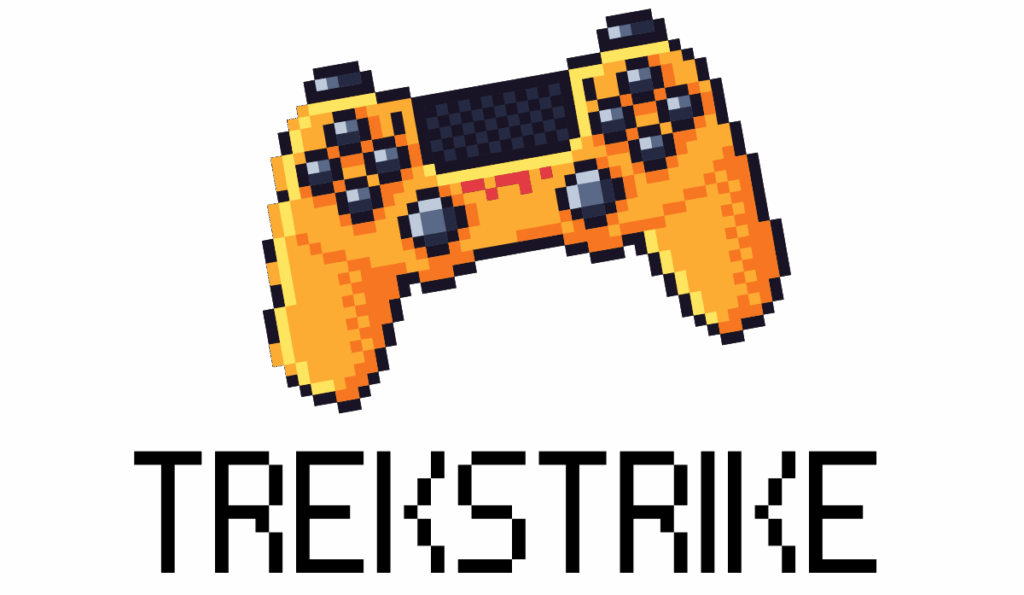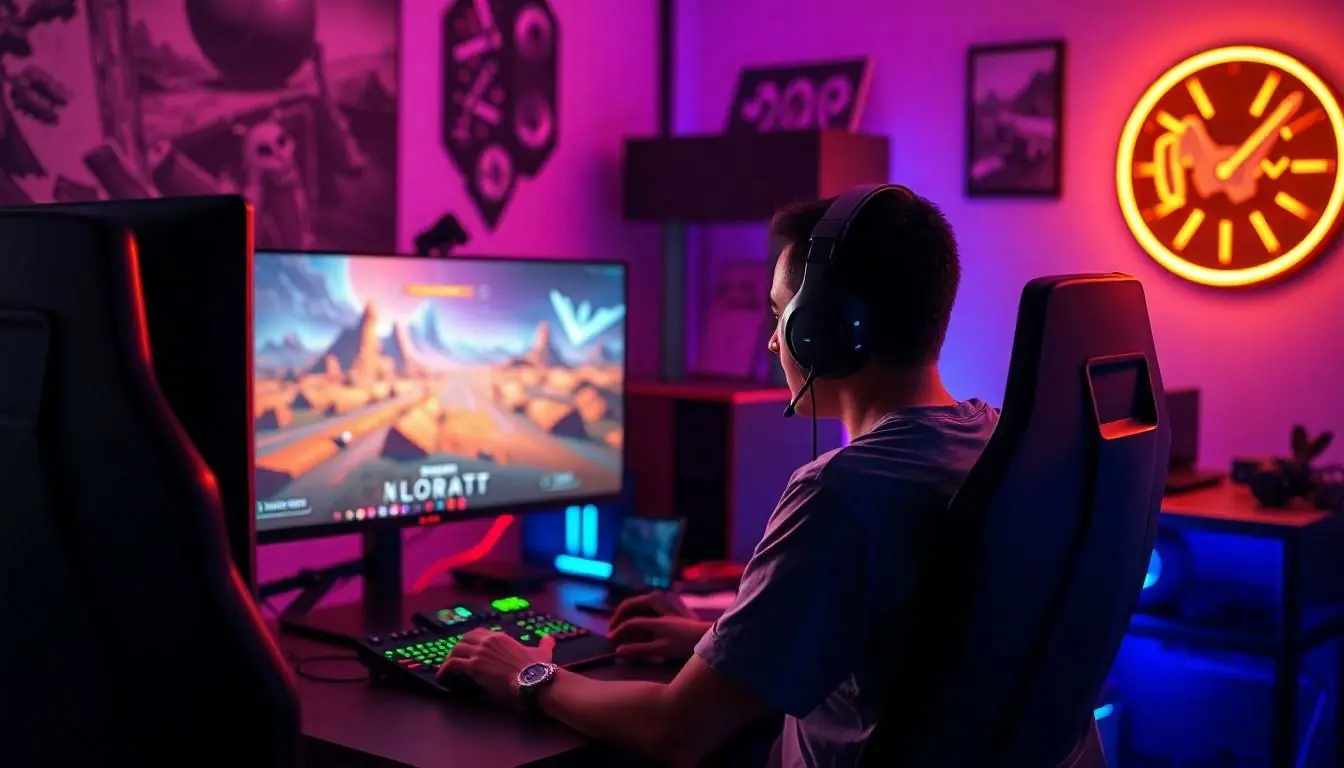In the fast-paced world of Valorant, every second counts, and knowing how many hours you’ve logged can be as important as mastering your aim. Whether you’re trying to brag to your friends or just keeping tabs on your gaming habits, tracking your hours can offer some surprising insights. After all, who doesn’t want to know if they’ve spent more time in the game than in the gym?
Table of Contents
ToggleUnderstanding Valorant Playtime Tracking
Valorant features built-in tools for tracking gameplay hours. Players benefit from insights into their gaming patterns, which help assess time management. Understanding playtime can enhance focus and motivate improvement.
One method to check playtime occurs through the game’s client. Access the game and navigate to the Career tab. This area displays detailed statistics, including total hours played. Users can also view performance trends over time.
Another option for tracking time involves third-party applications. Applications such as Overwolf and various Steam features allow players to monitor gaming sessions. These tools provide in-depth analytics, spotlighting playtime alongside other KPI metrics.
Earning insights from playtime statistics aids players in determining balance. When reviewing their data, players can evaluate whether gaming hours align with other priorities, like fitness routines or academic commitments.
Communicating with friends about playtime can create accountability. Sharing gaming hours fosters an environment of support and challenge among players. It also promotes discussions about time spent on gaming vs. other interests.
Overall, understanding Valorant playtime tracking provides players with a clearer view of their habits. With regular reviews, they make informed decisions to enhance both gaming performance and their overall lives.
Methods to Check Hours on Valorant
Knowing how to check hours in Valorant enhances gameplay awareness. Players can employ various methods to track their playtime effectively.
In-Game Tracking
Valorant provides an integrated way to monitor gameplay hours. Players access their playtime through the Career tab in the main menu. Detailed statistics show total hours played alongside agent performance metrics. Players can also view their recent match history, offering insight into session frequency. This built-in tracking keeps everything organized, eliminating the need for external resources. Regularly checking these stats aids in recognizing trends and patterns in playtime.
Using Riot Client
The Riot Client offers additional features for tracking gameplay hours. Players can download and install the client to gain access to enhanced statistics. Within the client, players find a dedicated section displaying total hours spent in Valorant. This overview includes past sessions and helps evaluate overall performance. Utilizing the Riot Client guarantees a streamlined way of accessing data without navigating multiple platforms. Players benefit from having detailed analyses directly at their fingertips.
Third-Party Tools for Tracking Hours
Many players prefer using third-party tools for monitoring their gaming hours in Valorant. These applications often offer enhanced functionalities compared to the game’s built-in options.
Popular Tracker Tools
Overwolf ranks among the leading third-party applications for tracking game hours. This tool provides players with real-time stats, including entire session durations and detailed breakdowns of individual matches. Another notable option is Steam, which allows players to view their total gameplay hours across all games, including Valorant. Other tools like Tracker Network and Mobalytics also provide in-depth analytics, enabling players to assess performance metrics and gaming trends effectively.
Benefits and Drawbacks
Using third-party tools presents several advantages. They enhance tracking capabilities, offering insights into playtime not typically available in the game itself. Players can analyze their gaming patterns more precisely, leading to better time management. However, some drawbacks exist. Privacy concerns may arise when sharing gaming data with external applications. Additionally, reliability can vary among tools; selecting reputable options is essential to avoid inaccuracies in tracking hours. Balancing these benefits and drawbacks can help players find the right method for tracking their Valorant gameplay.
Enhancing Your Gameplay Experience
Tracking hours in Valorant enhances a player’s overall experience, offering insights into gameplay habits. Utilizing the Career tab in Valorant provides direct access to statistics, including total hours and agent performance. Monitoring this data encourages players to identify trends and adjust strategies.
Incorporating third-party tools further enriches gameplay evaluation. Overwolf, for instance, delivers real-time stats, detailed match breakdowns, and additional analytics. Players can find further engagement with Steam, which totals gameplay hours across all titles, creating a broader gaming perspective. Tools like Tracker Network and Mobalytics offer comprehensive analytics, allowing for more informed decisions regarding playtime and improvement areas.
Understanding playtime helps address gaming balance. Players can assess their hours against personal priorities, like fitness or studies. Communicating with friends about gameplay hours fosters accountability while encouraging a supportive environment.
Maximizing gameplay performance hinges on how well a player utilizes time management tools. Establishing a routine that incorporates these assessments often leads to a healthier gaming lifestyle. Integrating knowledge from various sources allows for a holistic view of gaming, creating opportunities for strategic development.
Conclusion
Tracking hours in Valorant is essential for players looking to enhance their gaming experience. By utilizing the in-game tools and third-party applications, players can gain insights into their habits and performance. This awareness not only helps in improving skills but also in maintaining a healthy gaming balance.
Establishing a routine that includes regular assessments of playtime can lead to better time management and personal accountability. Engaging with friends about gaming hours fosters a supportive environment that encourages growth and improvement. Ultimately, understanding playtime dynamics can significantly impact both gaming performance and overall life balance.




